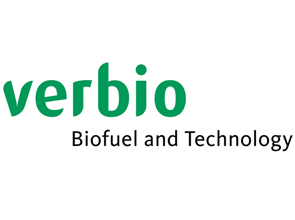
German Environmental Minister Norbert Röttogen gives OK to biofuel producer and supplier Verbio's proposal to build a biogas plant in Schwedt.
The 2 March 2011 saw German Environmental Minister Norbert Röttogen OK biofuel producer and supplier Verbio’s proposal to build a biogas plant in Schwedt.
The plant will produce second generation biofuel from biomass residues without the use of foodstuffs. Verbio’s second biogas plant of this kind, it has a power output of 30MW in the initial stage, and is to be expanded to 75MW.
‘Our verbiogas is the solutions for making biofuels a viable replacement for fossil fuels in environmental and economic terms,’ explains Verbio’s CEO Claus Sauter. ‘As an alternative fuel to diesel, the Verbio biogas can help to reach or even beat the CO2 emissions target of 95g/km for newly registered passenger cars set by the EU for 2020 much more quickly.
‘verbiogas is produced from biomass residues, achieves a 90% reduction in greenhouse gases (GHGs) compared with petrol, is already competitive and is a genuine second generation biofuel,’ he continues.
[ad]
According to Röttgen, ‘The innovative Verbio biogas plant in Schwedt is an outstanding example of how Germany is a world leader in environmental technology. This innovate concept shows the way forward for biomass use. If we intend to meet our targets for expanding renewable energy, we need more bioenergy, not less. At the same time, we must not let bioenergy impair or jeopardise the production of foodstuffs or harm biodiversity. The Verbio concept is the key to the future here, as it helps to alleviate the conflicts in use between bioenergy and food production.’
The plant will produce biogas exclusively from biomass residues materials such as slope, a by-product of bioethanol production, and straw. The biogas is processed to the same quality standard as natural gas, and then fed into the existing natural gas network and made available as a fuel at natural gas filling stations.
The development comprises a bioethanol plant, a biogas plant and a bio-fertiliser plant. The biofuels produced in this way achieve GHG reductions of up to 90% compared with petrol.
From early 2011 onwards Verbio will generate an estimated 500GWh of verbiogas from its plants in Schwedt and Zörbig. This is enough to supply to 25% of Germany’s natural gas stations. The company’s output will increase to 2,000GWh by 2015.

